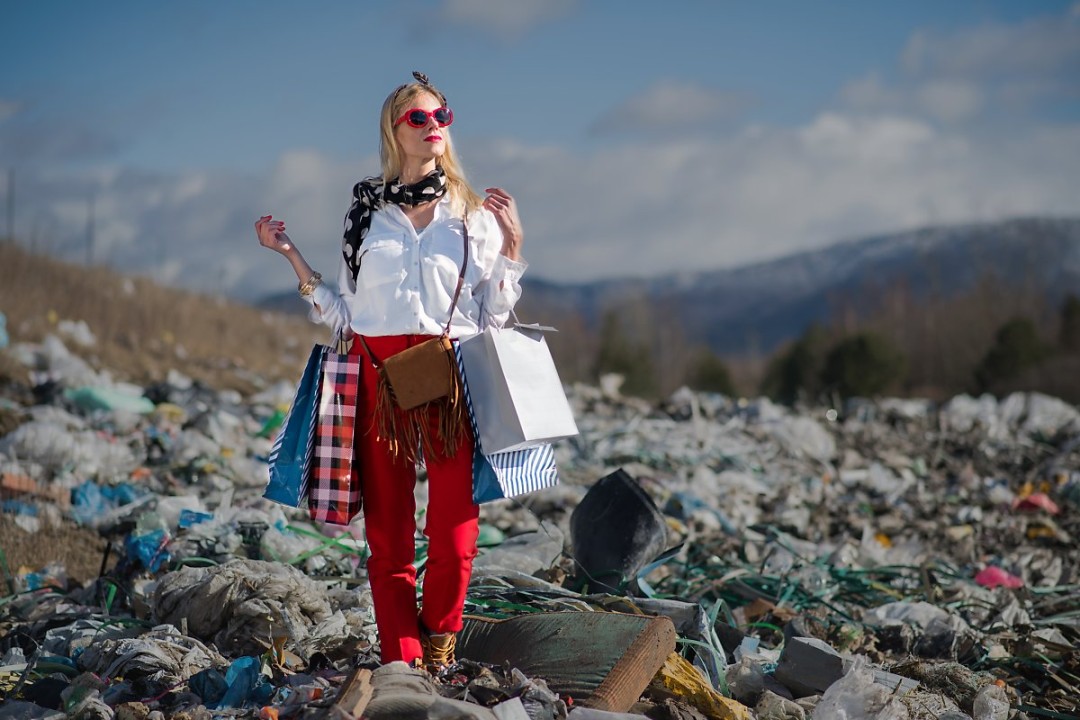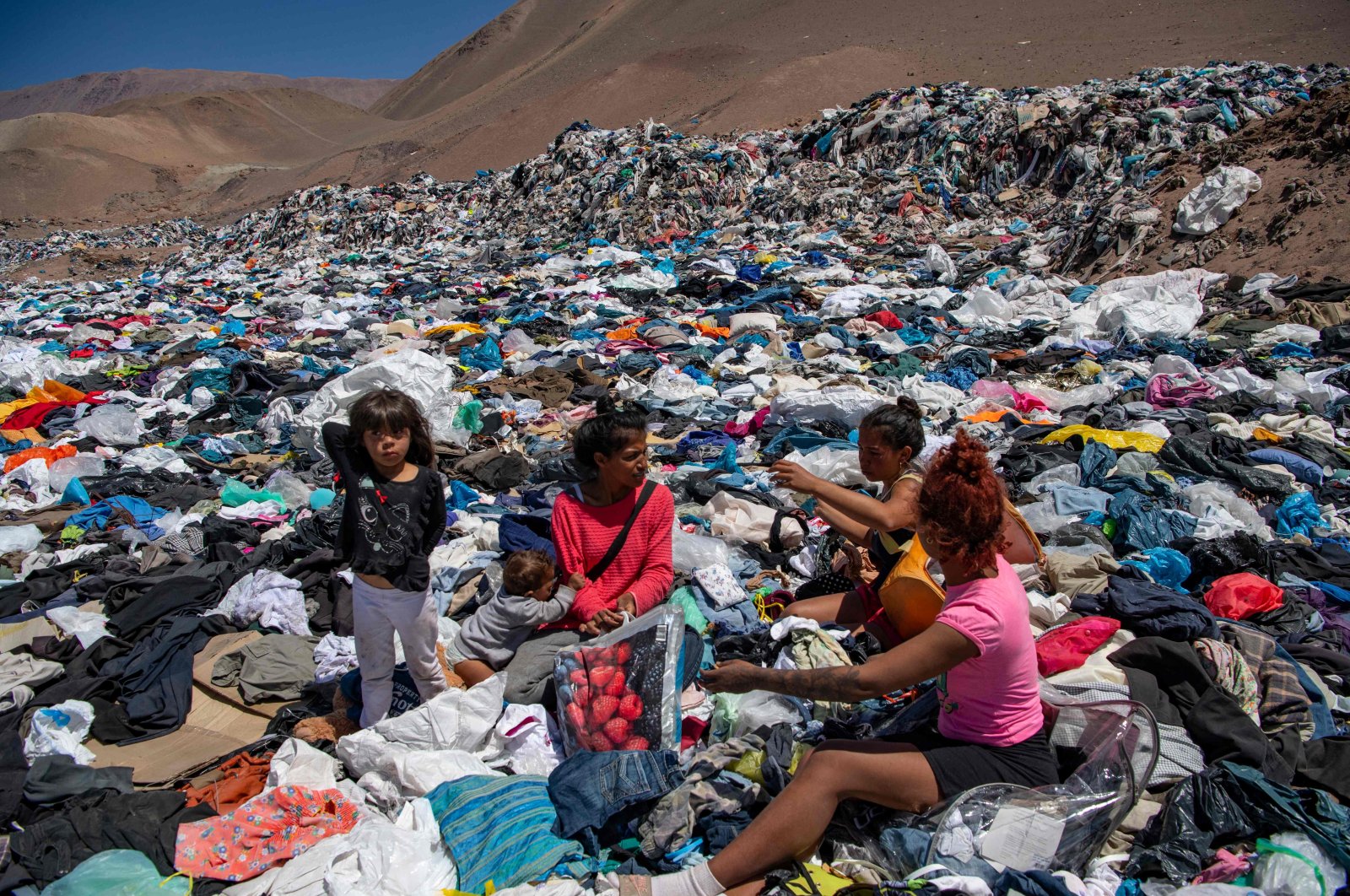Let's shed light on the environmental and social consequences of the fast fashion industry and discuss more sustainable approaches to clothing production and consumption.
What is Fast Fashion
Fast fashion is a highly profitable and pervasive segment of the fashion industry characterized by the rapid production, marketing, and sale of low-cost clothing. This business model responds swiftly to the latest fashion trends often copying styles and designs seen on runway shows or worn by celebrities. Then companies will quickly mass-produce these items to make them available to the general public at affordable prices. The rise of fast fashion has transformed how consumers interact with fashion by promoting a throwaway culture where clothing is seen as disposable. Fast fashion has made stylish apparel more widely available, but there are serious concerns about its long-term sustainability and ethical implications. As a result, calls for more ethical production and consumption practices within the fashion industry are growing.
How Does Fast Fashion Impact the Environment
Fast fashion has a significant and multifaceted impact on the environment, contributing to various forms of ecological degradation. The fashion industry is a major source of pollution. This includes water pollution from untreated dyeing processes, which release toxic chemicals into water bodies, affecting aquatic life and the health of communities living nearby. Air pollution is also a concern, with the production and transport of fast fashion contributing significantly to CO2 emissions. The fast fashion model encourages disposable consumption, leading to enormous amounts of textile waste. Many fast fashion products are of low quality and designed for short-term use, leading to a cycle where clothes are quickly discarded and replaced. This results in significant landfill waste, as synthetic fibers can take hundreds of years to decompose.
The expansion of agricultural land for cotton production and the clearing of forests for plantations to produce other natural fibers contribute to habitat destruction and loss of biodiversity. The use of pesticides and fertilizers in cotton farming also affects soil health and local wildlife. Washing clothes made from synthetic fibers releases microplastics into water systems. These tiny plastic particles can accumulate in waterways, oceans, and aquatic organisms, threatening marine life and entering the human food chain. The fashion industry, especially fast fashion, is energy-intensive. From manufacturing to shipping, the energy used further contributes to greenhouse gas emissions and global warming. The environmental impact of fast fashion is complex and extends across the entire lifecycle of clothing items, from production to disposal. Addressing these impacts requires systemic changes in how clothes are designed, produced, consumed, and recycled, as well as a shift towards more sustainable and ethical fashion practices.
Social and Ethical Issues
Fast fashion's social and ethical problems are intricately linked, reflecting the industry's actions' broad impact on labor ethics and human rights. These worries draw attention to the importance of systemic change in order to guarantee workers' safety, respect, and equitable treatment. They also call for ethical considerations in production processes. Many fast fashion factories are known for their poor working conditions. Workers often face long hours, with minimal breaks, and under high-pressure environments to meet tight production deadlines. These conditions not only strain physical and mental health but also leave little room for workers to voice concerns or demand better treatment due to fear of retaliation or job loss. The industry is notorious for paying workers wages that are well below a living wage. This economic exploitation is particularly prevalent in countries with weak labor laws, where manufacturers can take advantage of low-cost labor to maximize profits. The disparity between the wages of garment workers and the retail price of clothing items underscores the inequality embedded within the industry. Reports of child labor and forced labor practices within the supply chains of some fast fashion brands have raised serious ethical concerns. These practices often occur in the earlier stages of production, such as in cotton picking or in the manufacturing of raw materials, where oversight is more challenging. Children working in these conditions are deprived of education and a childhood, while adults may work under coercion, without the freedom to leave due to debt bondage or threats. The fast fashion industry poses significant health and safety risks to its workers. The Rana Plaza disaster in 2013, where over 1,100 garment workers died when a factory complex collapsed in Bangladesh, brought global attention to the dire safety conditions many workers face. Besides physical safety, chemical exposure is a significant risk, as workers often deal with hazardous substances without adequate protective gear, leading to respiratory issues, skin conditions, and other health problems.
Addressing the social and ethical issues of fast fashion requires a multifaceted approach, including stronger regulations and enforcement of labor laws, transparent supply chains, corporate accountability, and a shift in consumer behavior towards more sustainable and ethically made products.
More articles on Fast Fashion are below:
Emily Le




No comments:
Post a Comment